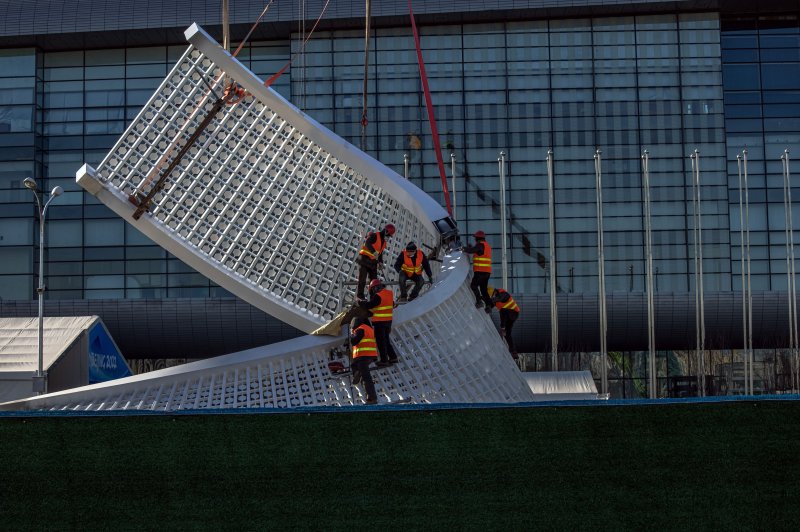1 of 3 | Construction workers work near the venues for the Beijing 2022 Winter Olympics, in Beijing, China on Monday. The Beijing 2022 Winter Olympics are scheduled to start on Feb. 4. Photo by Roman Pilipey/EPA-EFE
Jan. 17 (UPI) -- The Beijing Winter Olympics Organizing Committee announced Monday that tickets for the global competition will not be sold to the public but will be distributed "exclusively" to residents of the country who meet strict COVID-19 requirements.
Organizers previously said in September that tickets would be sold only to people living in mainland China because of "the grave and complicated situation of COVID-19 globally."
"It was decided that tickets should not be sold anymore but be part of an adapted program that will invite groups of spectators to be present on site during the Games," the new statement reads.
"The organizers expect that these spectators will strictly abide by the COVID-19 countermeasures before, during and after each event as pre-conditions for the safe and sound delivery of the Games."
The move comes two days after officials in Beijing said that the Chinese capital has recorded its first case of the Omicron variant ahead of the Lunar New Year and the opening of the Winter Olympics.
Pang Xinghuo, deputy director of the Beijing Municipal Center for Disease Prevention and Control, said during a news conference Saturday that officials had locked down the infected person's workplace at the Haidian New Technology Building and residential compound in Beijing's Haidian District.
Pang said China is facing "dual risks at home and abroad" from coronavirus and that it would be necessary to strictly implement the country's prevention and control strategy.
"Your active cooperation will help the capital. Epidemic prevention and control work is extremely important," Pang said.
On Monday, Pang said that the local case was traced to a piece of international mail the patient had received from Canada which had traveled to China through the United States and Hong Kong, state media reported.
He Qinghua, an official with the National Health Commission, said China is now facing challenges mainly from imported cases and a domestic travel rush in the upcoming holiday season for the Lunar New Year.















